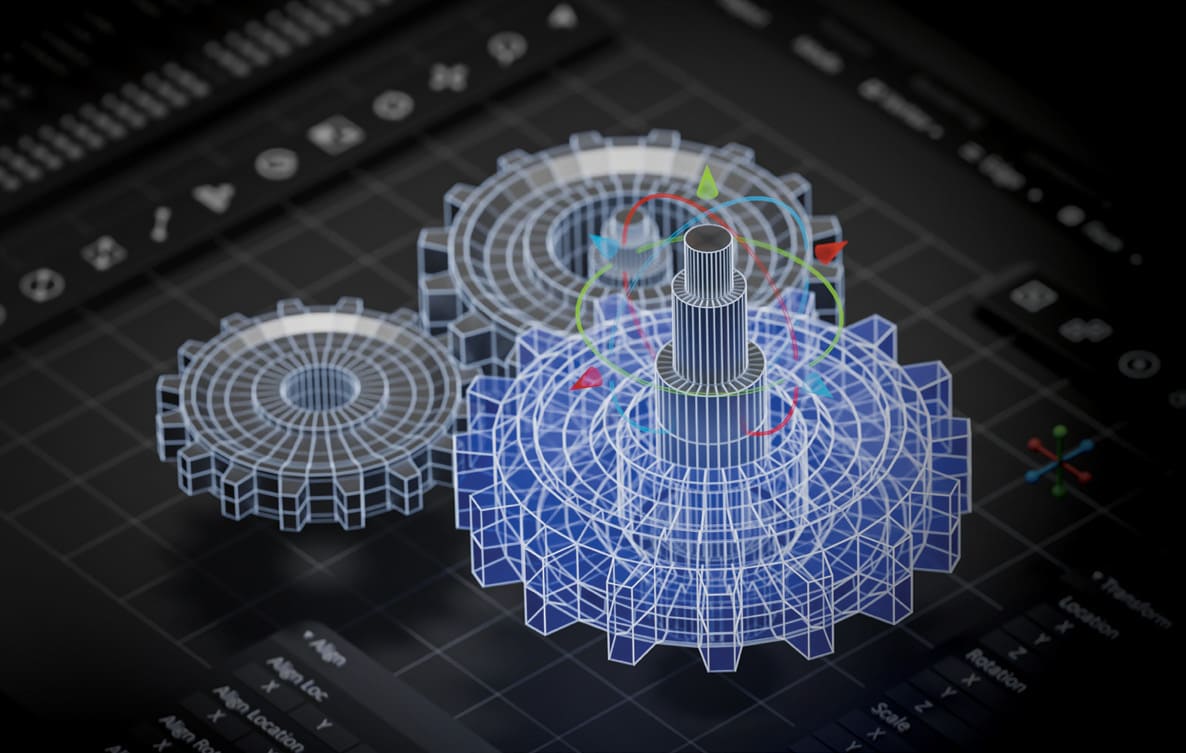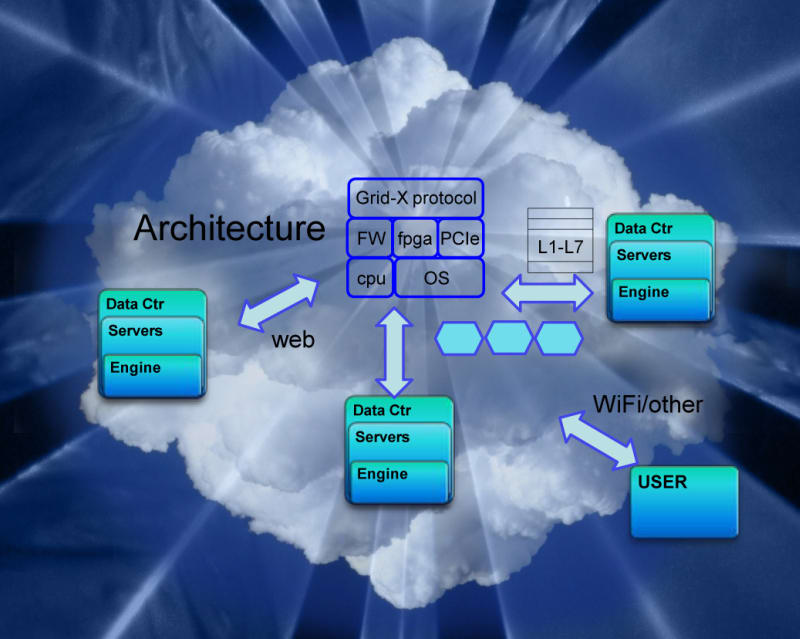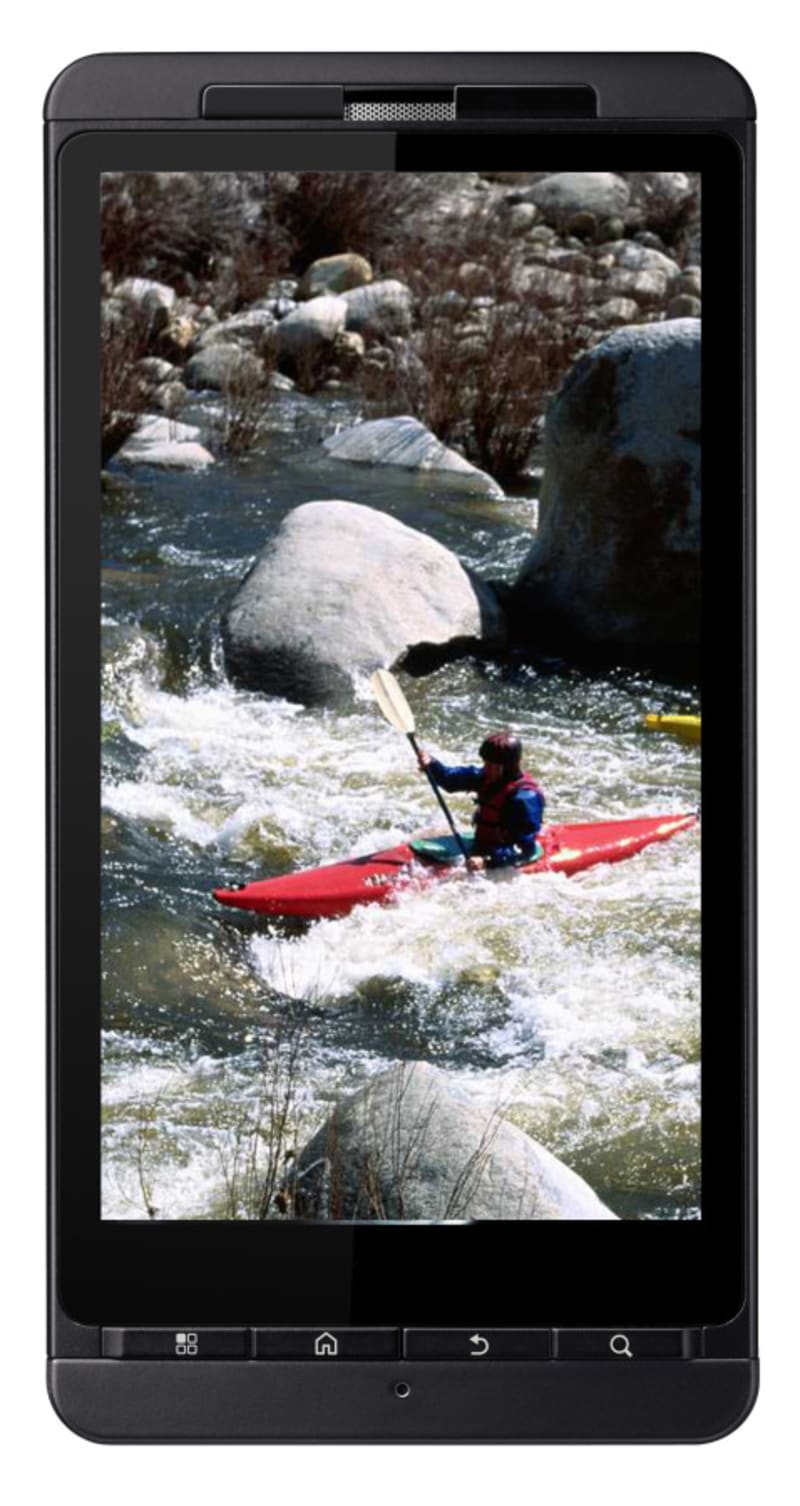

Supercomputers are linked worldwide, creating ultra-high performance cloud, utility, and grid computers. The Bandwidth-Delay Product (BWDP), where “delay” is the round trip time for data transfer, defines required buffer memory. Grid-X is a SeaFire innovation that addresses BWDP, and enables faster local and globally distributed supercomputing at lower power and cost. SeaFire also created a variant called Grid-X Mobile for smartphones.
Grid-X was developed to advance data transfer in high performance computing (HPC) systems. We also developed Grid-X interfaces to the data transfer package GridFTP and interface architecture to iRODS as part of the effort to reduce BWDP in e-Science. Both GridFTP and iRODS are used for HPC data transfer by facilities at NASA, NSF sponsored laboratories, national laboratories, and other federal entities.
Grid-X is network acceleration technology that reduces memory requirements, reduces BWDP, and decreases power consumption per channel in multiples of 10Gbps - 100Gbps full-duplex (f-d). Grid-X increases CPU core resource availability. This innovation was created through novel firmware, hardware, and protocol design using COTS materials and transport with UDP or TCP. Grid-X development was funded in part by non-duplicative SBIR grants from NASA and NSF, and through seed investments. Part of our invention was published in NASA Tech Briefs in July, 2011 under GSC-15447-1. SeaFire Grid-X was awarded US Patent 8,103,785 on January 24, 2012, and Grid-X mobile is patent-pending.
Grid-X is being marketed for applications in cloud computing network acceleration, enterprise network equipment, and prospective network IP sub-licensees. Additional applications for Grid-X include accelerated management of defense systems, improving ultra-high speed stock market trading, and for fast transfer of large volumes of hospital patient data. Additional customers would include manufacturers of motherboards, cluster systems, and HPC systems or integrators.
Grid-X Mobile would significantly increase speed of streaming video to be enjoyed by smartphone users. Also, physicians will be able to quickly access and view patient medical images on a smartphone. This will enable faster, more in-depth diagnosis and treatment by on-call MD’s, and reduce excessive use of emergency rooms.
Grid-X works by removing the requirement for the operating system (OS) to process the network transport layer protocol for TCP or UDP. Instead, the transport protocol is bypassed: the packet data is transferred to the application, and the packet header is transferred to the OS for batch processing. SeaFire architected and prototyped new firmware, drivers, code for COTS FPGA hardware System-On-Chip (SOC), and new ultra-high speed board-level hardware manufacturability with industry standard fabrication materials and processes. The I.P. can be ported into reduced cost high volume ASICs. SeaFire technology therefore does not incur high manufacturing costs. Grid-X Mobile requires less SOC logic resources, and mainly emphasizes on BW optimization. The prototype exceeded 90% BW utilization within n x 10GigE Cloud/Grid Linux systems. Some configurations reduced power consumption by nearly 70% per 10 Gbps channel compared to products in the market. A software-only prototype of Grid-X Mobile was tested on an HTC smartphone using Android, Wi-Fi, 3G, and can operate on 4G or other wireless networks.
-
Awards
-
 2012 Electronics Category Winner
2012 Electronics Category Winner -
 2012 Top 100 Entries
2012 Top 100 Entries
Like this entry?
-
About the Entrant
- Name:James Awrach
- Type of entry:individual
- Software used for this entry:Mentor, Synopsys, Xilinx, Android
- Patent status:patented

















